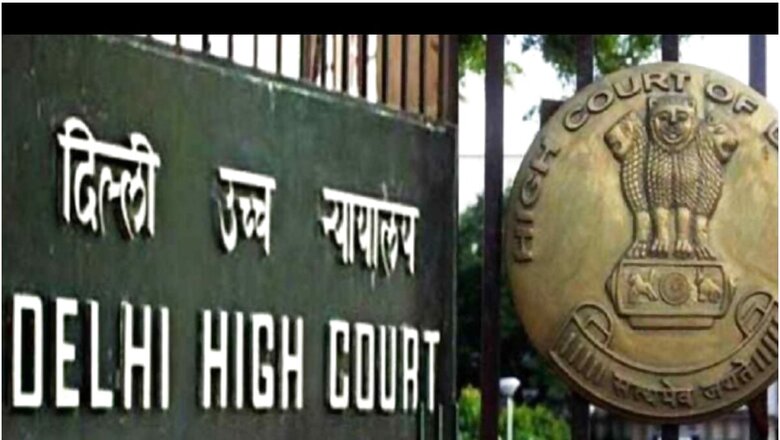
views
In a significant ruling pertaining to a dowry death case involving alleged harassment of a daughter-in-law over the birth of a girl child, the Delhi High Court has underscored the need for educating perpetrators about the genetic science governing the determination of a child’s gender.
Justice Swarana Kanta Sharma emphasised that perpetrators must recognise that it is their son, not their daughter-in-law, whose chromosomes, through the union of a married couple, dictate the birth of a daughter or a son.
The court highlighted the disregard for “genetic science”, elucidating that genetic determination involves the combination of X and Y chromosomes, with females possessing XX chromosomes and males having an X and a Y chromosome each.
“Surprisingly, the genetic science in this regard is ignored according to which, the genetic determination of gender of the unborn child when the child is conceived involves the combination of X and Y chromosomes, with females possessing two X chromosomes (XX) and males having one X and one Y chromosome (XY)…According to Encyclopedia Britannica, the outcome of fertilisation depends on whether an unfertilised egg fuses with a sperm carrying an X or Y chromosome, resulting in the birth of a girl or boy, respectively,” the court said.
Justice Sharma said the court had dealt with numerous cases of harassment, nagging, and suicide or dowry deaths due to women being victimised for giving birth to daughters after being constantly harassed over not being able to fulfil their husband and in-laws’ desire of “preserving the family tree”.
The court highlighted the prevalence of regressive mindsets and instances exemplified by cases involving insatiable dowry demands, framing them as a broader societal concern.
Justice Sharma underscored the challenges faced by married women, emphasising that their intrinsic value and dignity should not hinge on their parents’ ability to meet exorbitant financial demands from their in-laws.
“The persistent prevalence of regressive mindsets and instances exemplified by cases involving insatiable demands for dowry underscores a broader societal concern. It highlights the challenges faced by married women, whose intrinsic value and dignity should not be contingent upon their parents’ ability to meet the insatiable financial demands from their in-laws,” the court said.
“In contemporary times, the idea of a woman’s worth being tied to material considerations, such as dowry, contradicts the principles of equality and dignity. The notion that a woman’s value diminishes if her parents cannot fulfill dowry expectations of her husband and in-laws reflects a deep-seated bias and discrimination against women. Such expectations not only violate the principles of gender equality but also contribute to an environment where women are objectified and reduced to mere transactions,” the court observed.
The single-judge bench made the observations while dismissing a bail plea filed by the husband in a dowry death case.
The man, along with his family members, was accused of torturing his wife for dowry, leading to her ending her life. It has been alleged by the complainant, the father of the deceased woman, that the accused and his family pressured his daughter for additional dowry and financial demands, causing significant distress. It has also been alleged by him that she was taunted and mistreated for giving birth to two daughters.
The court opined that in a society that emphasises equality and strives for equal progress for women and women’s empowerment, incidents like the present one are etched as disheartening markers on the path of equal societal advancement for women.
The court noted, “Prima facie at this stage, a woman has lost her life for giving birth to females, which should be totally unacceptable to a conscientious society. Such offences have to be considered as grave and serious when the trial is yet to begin.”
Furthermore, noting that since the allegations against the present applicant/accused are grave and serious in nature, the charges are yet to be framed, and the material witnesses are yet to be examined, the court said it is not inclined to enlarge him on bail at this stage.
“Accordingly, the present bail application stands dismissed, along with any pending applications, if any. It is also clarified that nothing expressed hereinabove shall tantamount to expression of opinion on the merits of the case,” the court ordered.

















Comments
0 comment